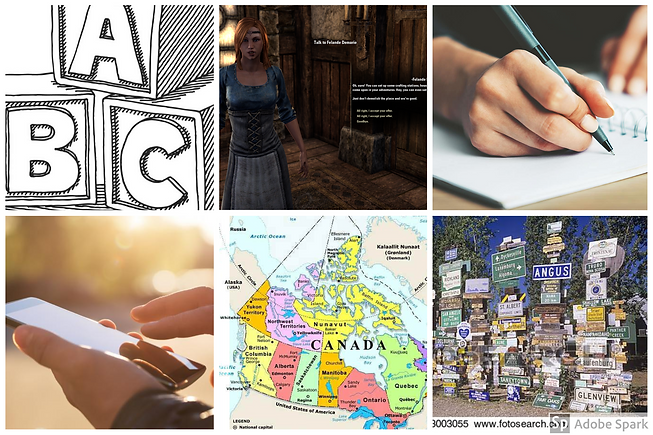Writing Thresholds: A Website about Threshold Concepts in Writing Studies

Writing Identities
Key Threshold Idea: Your past experiences inform your writing process and shape how you write
-
Our attitudes towards writing form early in our lives and stick with us.
-
What we’ve do in everyday life can inform our work in the writing classroom (Barton & Hamilton, 1998).
-
Our daily literate practices (including writing) are complex (see Street, 2009), but it can often seem that traditional writing instruction oversimplifies this complexity to fit a structure, leaving little room for a writer’s identity.
-
Knowing that a writer’s experiences count and have a place in writing can help them develop their writing skills.
-
Through writing, writers can form identities and help one develop a deeper sense of self (Roozen, 2015). This work is ongoing and is never fully settled, developing over the course of a lifespan—not just in a classroom (Bazerman et al., 2017; 2018).
Audio Example

-
“Most [students] come to education with ‘funds of knowledge’ in terms of the literacy practices in their everyday lives, which might act as resources for literacy development at school or college” (Ivanič, 2009, p. 103).
-
“The act of writing, then, is not so much about using a particular set of skills as it is about becoming a particular kind of person, about developing a sense of who we are” (Roozen, 2015, p. 51).
-
Identity is not just something that stems from the individual; it is influenced by various “social actors, organisations, significant texts, locations and events” (Hamilton, 2015, p. 113).
Quotes from the Field
References
Barton, D., & Hamilton, M. (1998). Local literacies: Reading and writing in one community. Routledge.
Bazerman, C., Applebee, A. N., Berninger, V. W., Brandt, D., Graham, S., Matsuda, P. K.,...Schleppegrell, M. (2017). Taking the Long View on Writing Development. Research in the Teaching of English, 51(3), 351-360.
Bazerman, C., Applebee, A. N., Berninger, V. W., Brandt, D., Graham, S… Wilcox, K.C. (2018). The lifespan development of writing. WAC Clearinghouse.
Hamilton, M. (2015). The everyday and faraway: Revisiting Local Literacies. In J. Sefton-Green & J. Rowsell (Eds.), Learning and literacy over time: Longitudinal perspectives (pp. 98-115). Routledge.
Ivanič, R. (2009). Bringing literacy studies into research on learning across the curriculum. In M. Baynham & M. Prinsloo (Eds.), The future of literacy studies (pp. 100-122). Palgrave Macmillan.
Roozen, K. (2015). Writing is linked to identity. In L. Adler-Kassner & E. Wardle (Eds.), Naming what we know: Threshold concepts of writing studies (pp. 50-51). Utah State UP.
Street, B. (2009). The future of ‘social literacies’. In M. Baynham & M. Prinsloo (Eds.), The future of literacy studies (pp. 21-37). Palgrave Macmillan.